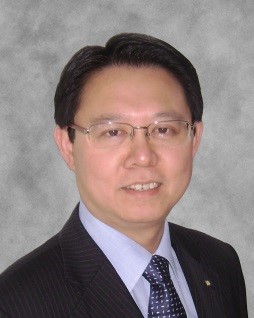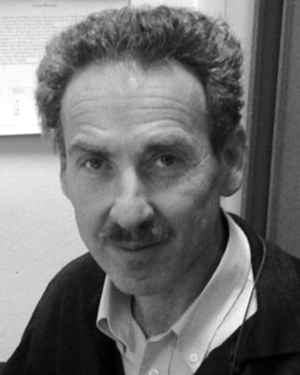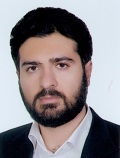
1. Keynote Addresses
(1) Prof.Xinghuo Yu, RMIT University, Australia

Talk Title: Dealing with Complexity in Cyber-Physical-Social Systems with Simplexity
Abstract: Cyber-Physical-Social Systems (CPSS) represent a broad range of future complex, multidisciplinary, physically and societally aware next-generation engineered systems that integrate embedded computing technologies (cyber part) into the physical world taking social and human considerations. A typical scenario is the future CPSS in Energy where smart grids integrate with social, economic and environmental models to form an energy eco-system that is vital to the future of industry, economy, society and the Nature. Such setting results in enormously increased complexity which requires an innovative way of thinking in dealing with modelling, control and optimisation with efficiency and effectiveness.
In this talk, we will first outline some recent developments in CPSS and their technological challenges. We will then discuss a potential ‘simplexity’ problem solving paradigm which advocates simple solutions for complex problems. The implications of adopting such paradigm in dealing with complexity in CPSS will be discussed, and some potential future methods inspired by the Nature will be speculated.A number of real-world cases, including some of our own research, will be used as case studies.
Biography: Prof. Xinghuo Yu is an Associate Deputy Vice-Chancellor and Distinguished Professor of Electrical and Electronic Engineering at Royal Melbourne Institute of Technology (RMIT University), Melbourne, Australia. He is also the President of IEEE Industrial Electronics Society, and a Chang Jiang Chair Professor with Southeast University.
He received BEng and MEng degrees from the University of Science and Technology of China, Hefei, China, in 1982 and 1984, and PhD degree from Southeast University, Nanjing, China in 1988, respectively. In 1989-1991, he was a Postdoctoral Fellow with University of Adelaide, Australia. In 1991-2002, he was Central Queensland University, Australia, where, before he left, he was Chair Professor of Intelligent Systems. Since 2002, he has been with RMIT University, where he held several senior positions such as Associate Dean and Research Institute Director.
His main research areas include control systems, intelligent and complex systems, energy systems engineering. He received many awards and honours for his contributions, including 2018 M A Sargent Medal from Engineers Australia, 2018 Australasian AI Distinguished Research Contribution Award from Australian Computer Society, and 2013 Dr.-Ing. Eugene Mittelmann Achievement Award from IEEE Industrial Electronics Society. He was named a Highly Cited Researcher by Clarivate Analytics in 2015-2018. He is a Fellow of the IEEE, Engineers Australia, Australian Computer Society, and Australian Institute of Company Directors.
(2) Prof. Xiaohong Guan, Xi'an Jiaotong University, China

Talk Title: to be determined
Abstract: to be determined
(3) Prof. Yang Shi, University of Victoria, Canada

Talk Title: Distributed Model Predictive Control for Cyber-Physical Systems
Abstract: Advanced control technologies for cyber-physical systems have received great attention in the control community due to its wide application areas. Network-induced limitations may be caused by the presence of a communication channel, or because of the efficient assignment of power and other limited resources. Cyber-physical systems represent a large class of smart systems that encompass cyberand physical components, seamlessly integrated and closely interacting to autonomously sense and manipulate the changing state of the physical system. These systems involve a high degree of complexity at numerous spatial and temporal scales and highly networked communications integrating computational and physical components. Model predictive control (MPC) is a promising paradigm for high-performance and cost-effective control of networked and distributed cyber-physical systems. This talk will firstly summarize the major application requirements and challenges to tackle and innovate in designing, implementing, deploying and operating cyber-physical systems. Further, distributed MPC design methods will be presented. Finally, the application of distribute MPC methods will be discussed.
Biography: Prof. Yang Shi received the Ph.D. degree in electrical and computer engineering from the University of Alberta, Edmonton, AB, Canada, in 2005. From 2005 to 2009, he was an Assistant Professor and Associate Professor in the Department of Mechanical Engineering, University of Saskatchewan, Saskatoon, Saskatchewan, Canada. In 2009, he joined the University of Victoria, and now he is a Professor in the Department of Mechanical Engineering, University of Victoria, Victoria, British Columbia, Canada. His current research interests include networked and distributed systems, model predictive control (MPC), cyber-physical systems (CPS), robotics and mechatronics, navigation and control of autonomous systems (AUV and UAV), and energy system applications. Dr. Shi received the University of Saskatchewan Student Union Teaching Excellence Award in 2007. At the University of Victoria, he received the Faculty of Engineering Teaching Excellence in 2012, and the Craigdarroch Silver Medal for Excellence in Research in 2015. He received the JSPS Invitation Fellowship (short-term) in 2013 and the Humboldt Research Fellowship (for experienced researchers) in 2017. His co-authored paper was awarded the 2017 IEEE Transactions on Fuzzy Systems Outstanding Paper Award. He received the Humboldt Research Fellowship for Experienced Researchers in 2018. He is a currently member of the IEEE IES Administrative Committee, and Chair of IEEE IES Technical Committee on Industrial Cyber-Physical Systems. Currently, he is Co-Editor-in-Chief for IEEE Transactions on Industrial Electronics; he also serves as Associate Editor for Automatica, IEEE Trans. Control Systems Technology, IEEE/ASME Trans. Mechatrnonics, IEEE Trans. Cybernetics. He is a Fellow of EIC (Engineering Institute of Canada), IEEE, ASME and CSME, and a registered Professional Engineer in British Columbia, Canada.
(4) Prof. Zhongsheng Hou, Qingdao University, China

Talk Title: PID and Its Puzzles——MFAC and Progress
Abstract: Many practical processes generate and store a huge amount of process data, which contains all the valuable information of the process operations and the equipment. How to use these process data, both on-line and off-line, to directly determine the controller structure, tune the controller parameter, design the output prediction, make the performance assessment, etc., would have great significance when the process models are unavailable. Therefore, the establishment on the data driven control theory is an urgent and important issue both for the theoretical development and field applications of the control theory. This talk includes four parts. The first is a brief survey on the existing problems of PID controller; The second is the dynamic linearization data modeling method for nonlinear systems; The third part will present the model free adaptive control (MFAC), including the indirect MFAC, the direct MFAC, and its progress; The final one is the MFAC application to a benchmark problem.
Biography: Prof. Zhongsheng Hou (SM’13) received the B.S. and M.S. degrees from Jilin University of Technology, Jilin, China, in 1983 and 1988, respectively, and the Ph.D. degree from Northeastern University, Shenyang, China, in 1994. From 1995 to 1997, he was a Postdoctoral Fellow with Harbin Institute of Technology,Harbin, China. From 2002 to 2003, he was a Visiting Scholar with Yale University, CT, USA. From 1997 to 2018, he was with Beijing Jiaotong University, Beijing, China, where he was a Distinguished Professor and the Founding Director of Advanced Control Systems Lab, and the Head of the Department of Automatic Control. He is currently a Chair Professor with theSchool of Automation, Qingdao University, Qingdao, China. His research interests are in the fields of data-driven control, model-free adaptive control, learning control, and intelligent transportation systems. Up to now, he has authored or co-authored more than 180 peer-reviewed journal papers and over 140 papers in prestigious conference proceedings. He has authored two monographs,Nonparametric Model and its Adaptive Control Theory, Science Press(in Chinese), 1999, and Model Free Adaptive Control: Theory and Applications, CRCPress, 2013.His pioneering work on model-free adaptive control has been verified in more than 160 different field applications, laboratory equipment and simulations with practical background, including wide-area power systems, lateral control of autonomous vehicles, temperature control of silicon rod. His works on data-driven learning and control has been supported by multiple projects supported by the National Natural Science Foundation of China (NSFC), including three Key Projects in 2009, 2015, and 2019, respectively, and a Major International Cooperation Project in 2012. Prof. Hou is the Founding Director of the Technical Committee on Data Driven Control, Learning and Optimization (DDCLO), Chinese Association of Automation (CAA), and is a Fellow of CAA. Heis also an International Federation of AutomaticControl Technical Committee Member of both “Adaptive and LearningSystems” and “Transportation Systems.” Dr. Hou was the Guest Editor for two Special Sections on the topic of data-driven control ofthe IEEE TRANSACTIONS ON NEURAL NETWORKS in 2011, and the IEEE TRANSACTIONS ON INDUSTRIAL ELECTRONICS in 2017.
(5) Prof. Wei Ren, University of California, Riverside, USA

Talk Title: Distributed dynamic state estimation in sensor networks: Consistency, confidence, and convergence
Abstract: The problem of distributed dynamic state estimation using networked local agents with sensing and communication abilities, has become a popular research area in recent years due to its wide range of applications such as target tracking, region monitoring and area surveillance. Specifically, we consider the scenario where the local agents take local measurements and communicate with only their nearby neighbors to estimate the state of interest in a cooperative and fully distributed manner. A distributed hybrid information fusion (DHIF) algorithm is proposed in the scenario where the process model of the target and the sensing models of the local agents are linear and time varying. The proposed DHIF algorithm is shown to be fully distributed and hence scalable, to be run in an automated manner and hence adaptive to locally unknown changes in the network, to have agents communicate for only once during each sampling time interval and hence inexpensive in communication, and to be able to track the interested state with uniformly upper bounded estimate error covariance. It is also explored very mild conditions on general directed time-varying graphs and joint network observability/detectability to guarantee the stochastic stability of the proposed algorithm.
Biography: Prof. Wei Ren is currently a Professor with the Department of Electrical and Computer Engineering, University of California, Riverside. He received the Ph.D. degree in Electrical Engineering from Brigham Young University, Provo, UT, in 2004. Prior to joining UC Riverside, he was a faculty member at Utah State University. His research focuses on distributed control of multi-agent systems and autonomous control of unmanned vehicles. He was a recipient of the Antonio Ruberti Young Researcher Prize in 2017 and the National Science Foundation CAREER Award in 2008. He is currently an Associate Editor for Automatica. He is an IEEE Fellow.
2. Distinguished Lectures
(1) Prof. Riccardo Meucci, Universita degli Studi Firenze, Italy

Talk Title: Chaotic dynamics in electronic and photonic devices
Abstract: Deterministic chaos has had a large impact in physics and in many other fields in the last 40 years, although Henri Poincarè at the end of the 19th century pointed out its existence and foundation.
In the early 1980s at the National Institute of Optics we providedthefirst evidence of chaotic behavior in a CO2 laser applying a periodic forcingto the cavity loss parameter. In such a kind of laser, later classified as a class B laser, it is necessary to introduce a third degree of freedom to thetwo intrinsic ones, that is, population inversion and photon number of the single mode laser field. Immediately later other strategies were found to achieve chaos in class B lasers.
The key role played by external periodic perturbations to different dynamical systems will be extensively discussed in the field of chaos control, another topic commonly investigated together with synchronization.
More recently, the attention has been focusedon electronic oscillators like the Duffing's and the van der Pol's (van der Pol first introduced the concept of relaxation oscillator). These oscillators play an important role in electronics and neuroscience.
(2) Dr. Sajad Jafari, Amirkabir University of Technology, Tehran, Iran

Talk Title: Megastability: definition and its relation with multistability, extreme mutlistability, and hidden attractors
Abstract: Multistability is one of the most important phenomena in dynamical systems. It occurs in many areas of science including physics, chemistry, biology, economics, and the nature. The attracting state of a multistable system depends on the initial conditions. Multistability can be undesirable, for example, in the design of a commercial device with specific characteristics where it must be avoided to stabilize the desired state in a noisy environment. On the other hand, multistability allows flexibility in the system performance without changing parameters, and that can be used with the right control strategies to induce a switching between different coexisting states. Sometimes, infinite attractors coexist in a dynamical system. When those infinite attractors are uncountable, the situation is called extreme multistability. However, when those infinite attractors are countable, the situation is called megastability. In this talk, we present some recent examples of megastable systems. We categorize them into two groups: megastable systems that are the result of infinite equilibrium points in the systems, and megastable systems that are not. We show that in the latter case, certainly infinite hidden attractors exist.
(3) Prof. Stefano Boccaetti, National Research Coubcil of Italy (CNR), Italy

Title: Collective organization of networked phase oscillators: from explosive synchronization to Bellerophon states
Abstract: I will discuss the spontaneous emergence of collective dynamics in networked phase oscillators. As a first step, I will discuss how synchronization may emerge in a graph. Synchronization is a process in which dynamical systems adjust some properties of their trajectories (due to their interactions, or to a driving force) so that they eventually operate in a macroscopically coherent way.A common result is that the vast majority of transitions to synchronization are of the second-order type, continuous and reversible. However, as soon as networked units with complex architectures of interaction are taken into consideration, abrupt and irreversible phenomena may emerge, namely explosive synchronization, which rather remind first-order like transitions. In the second part of my talk, I will concentrate on a recently unveiled coherent state, the Bellerophon state, which is generically observed in the proximity of explosive synchronization at intermediate values of the coupling strength. Bellerophon states are multi-clustered states emerging in symmetric pairs. In these states, oscillators belonging to a given cluster are not locked in their instantaneous phases or frequencies, rather they display the same long-time average frequency (a sort of effective global frequency). Moreover, Bellerophon states feature quantum traits, in that such average frequencies are all odd multiples of a fundamental frequency.
Biography: Prof. Stefano Boccaetti now is a member of Academia Europaea and a research Scientist at the Institute of Complex Systems, National Research Coubcil of Italy (CNR), Italy. As one of the pioneers in the study of system synchronization, chaos control, and network science, as well as the founder of the European statistical society, he has received honorable doctorate degrees and professorships from several well-known universities in the world. He serves as a director of several centers for complex system study in Spain and Italy. During the past two decades, Prof. Boccaletti’s mainly focused on complex network, nonlinear dynamics, system synchronization, chaos control, and applications of these research fields in interdisciplinary engineering, resulting in numerous creative achievements. From example, he has published more than 200 scientific papers, including Physics Reports,Physical Review Letters PNAS,
Nature Communications, Science Advances. His citation number exceeds 23000 with H-index 58. Besides, his papers and achievements have been highlighted by Nature News and other famous academic media.
(4) Prof. Simone Baldi, Southeast University, China

Title: Controls in smart buildings: experiences from European projects
Abstract: In this talk I will discuss some research activites I joined within European and Dutch projects about smart buildings and energy efficient buildings. Some general overview on challenges and goals will be given, althogh not all information will be disclosed as these projects involved some industrial cooperation with Honeywell, Fraunhofer Institute for Building Physics, and Dutch Central Government Real Estate Agency.
Biography: Prof. Simone Baldi is professor of Southeast University. Prior to this he was assistant professor at the Delft Center for Systems and Control, Delft University of Technology (TU Delft), postdoctoral fellow at the University of Cyprus (Prof. Petros Ioannou's group), and at the Information Technologies Institute, Greece (I.T.I.-CE.R.T.H, Prof. Elias Kosmatopoulos's group). He got his Ph.D. degree in Systems Engineering from University of Florence, Italy, in 2011, under the supervision of Prof. Edoardo Mosca. His research interests focus on adaptive and switching control, adaptive learning systems, artificial intelligence with its application in intelligent transportation systems, smart building, UAV formation etc. So far, more than 100 SCI and/or EI papers have been published, among them, more than 10 papers have been published in IEEE Transactions on Automatic Control and Automatica, the top journals in the field of automatic control, and more than 20 in top journals in the fields of smart energy, intelligent transportation and other application fields. He has been awarded outstanding reviewer for Applied Energy (2016), Automatica (2017), and IET Control Theory and Applications (2018). He serves in the IEEE technical committee on Systems Identification and Adaptive Control (since September 2016) and IFAC technical committee on Adaptive and Learning Systems (since September 2014); he has been guest editor on IET Control Theory and Applications and, since March 2019, he is a subject editor of the International Journal of Adaptive Control and Signal Processing.More info is available at his website: http://simonebaldi.my-board.org.